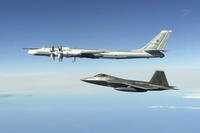As Iraq was George Bush’s war, Afghanistan is about to become Barack Obama’s war. A troop “surge” in Afghanistan begins next month with the arrival of an Army combat brigade, to be followed by three more combat brigades, an aviation brigade and supporting elements, in an effort to stop the spread of the Taliban insurgency.
The security trends in the seven year old Afghan war are going in the wrong direction. Coalition military deaths were the highest ever this year as IED and other insurgent attacks reached record levels. But the debate on American strategy in Afghanistan goes little beyond the Pentagon’s plan to add more troops. U.S. troop numbers will climb from the current level of 34,000 to around 58,000. The incoming Obama team has yet to say what they intend to do in Afghanistan to carry out Obama’s campaign promise to “win” there.
This has led to frustration among even Democratic policymakers. The worry is the Obama team hasn’t said much because they don’t really have much of a plan. Last week powerful Pennsylvania congressman Jack Murtha, chairman of the House Appropriations defense subcommittee, said, “I’m concerned when I hear of increasing our military presence by up to four brigades without a plan.” He fears the U.S. could be stuck fighting a bloody guerrilla war in Afghanistan for a long time to come in a country that has produced some of history’s most formidable warriors.
Those same worries extend to some in the military. Marine Col. Jeff Haynes, who just returned from a tour in Afghanistan as the commanding officer of Regional Corps Advisory Command-Central, the 201st Corps, Afghan National Army, issued a frank warning about the potential Americanization of the war there. On a reporter’s conference call, Haynes posed some very important questions regarding our future in Afghanistan: “What is the Afghan National Army doing for us with the fight? And are we relying too much on U.S. and coalition forces to do the heavy lifting in the counterinsurgency fight?”
The answer he provided to his own questions should be read carefully, as listening to Haynes, it was clear he chose his words carefully: “We're not demanding enough out of the Afghan National Army, considering the investment we put into them. In some cases, we hold them back. In other cases, I think we need to be kicking them in the tail and getting them moving. The Afghan National Army also needs to be competent enough and given the opportunity to own the battlespace. When they own battlespace, they own the problem, they do very, very well. If we over-partner and we do everything with the U.S. Army and other forces, the Afghan army is not going to develop. They're going to be more prone to sit on the sidelines and watch the coalition forces do it. And we're going to be there for a very long time with a whole lot of Americans.”
Haynes acknowledged there are enormous challenges to fielding a competent Afghan Army. Counterinsurgency is all about small unit operations, which puts enormous demands on lower level leadership and there is a troubling shortage of “competent, non-corrupt, dedicated officers.” Corruption in the Afghan Army is a huge problem, as it is at all levels of the Afghan government. Massive amounts of fuel often disappears into the black market, as does money that was supposed to buy food or pay salaries. Haynes said a disciplinary process must be established that works in their culture. The police force must also expand to establish a permanent security presence in remote rural areas.
Haynes said coalition troops spend too much time running up and down valleys “chasing bad guys.” The focus must shift to winning the support of the population. The way to do that, he says, is by expanding the Provincial Reconstruction Teams, small teams made up of development and governance experts from State and USAID, along with civil affairs and combat troops.
The war against the Taliban insurgency will not be won by a foreign army, if it can be won, it will have to be won by the Afghans themselves.








